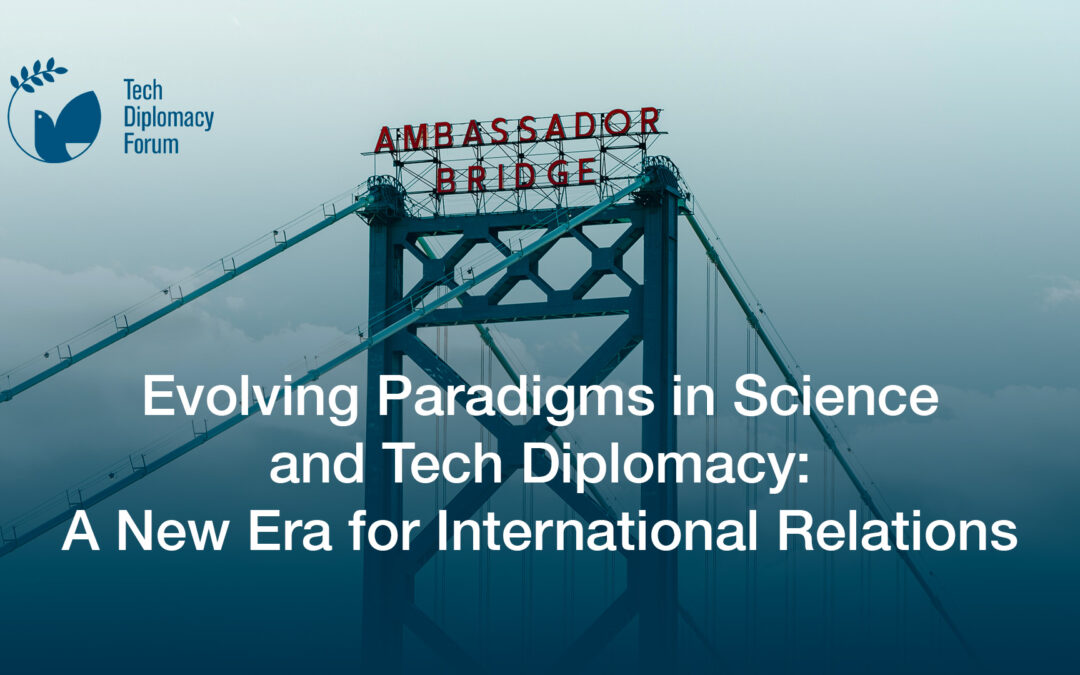Based on Balme, S. (2025). Evolving paradigms in science and tech diplomacy. Global Challenges, 17.
—
The landscape of international relations is undergoing a profound transformation. Science and technology, once peripheral to the core of diplomacy, now stand at its very center, driving both cooperation and competition on the global stage. Stéphanie Balme’s recent analysis in *Global Challenges* (2025) offers a sweeping overview of how science and tech diplomacy have evolved, the forces shaping their current trajectory, and what this means for the future of global governance.
From Enlightenment Expeditions to Institutional Frameworks
Science diplomacy is not a new phenomenon. Its roots stretch back to the Enlightenment, when scientific exploration and knowledge exchange were tools of both curiosity and statecraft. Landmarks such as the establishment of astronomical observatories in 16th-century China and the post–World War II creation of UNESCO and CERN illustrate the longstanding interplay between science and international relations.
However, it was only in 2010, with the Royal Society and AAAS’s New Frontiers in Science Diplomacy report, that science diplomacy was formally conceptualized as a distinct field. This report introduced a bottom-up approach, empowering scientists as central actors and emphasizing the need for deeper engagement between scientific communities and policymakers. It broadened the diplomatic agenda to include global challenges like climate change, migration, and public health, and called for the integration of scientific expertise into foreign policy (Balme, 2025).
Disruption and Redefinition: The 2020s
The optimism of the early 21st century—rooted in faith in science, globalization, and multilateralism—has been tempered by a series of disruptive events. The COVID-19 pandemic exposed weaknesses in the science-policy interface, highlighting both the value of international scientific collaboration and the dangers of misinformation and eroding public trust. This “crisis of expertise” paradoxically reinforced the need for robust science diplomacy (Balme, 2025).
Simultaneously, the rise of populism and post-truth politics has challenged the authority of scientific knowledge. In some countries, science has become a casualty of ideological battles, with expert advice sidelined in favor of political expediency. The United States, under the Trump administration, saw significant challenges to scientific norms and academic freedom, while China pursued a contrasting path, investing heavily in science and leveraging it as a tool of national strategy.
Geopolitical tensions have further complicated the landscape. The war in Ukraine and the intensifying US–China rivalry have led to scientific decoupling and heightened security concerns, particularly in fields like AI and quantum technology. The conflation of scientific collaboration with national security risk has chilled international cooperation and mobility, especially among diaspora scientists (Balme, 2025).
Multipolarity and the Proliferation of Actors
The geography of knowledge production is shifting. While elite research remains concentrated in the Global North, China’s ascent as a scientific powerhouse and the emergence of dynamic research ecosystems in the Global South (e.g., India, Brazil, South Africa) are creating a more multipolar scientific world. New actors—academic consortia, think tanks, NGOs, and even cities—are increasingly influential in shaping global science and tech diplomacy.
This proliferation of actors brings both opportunities and challenges. Scientific advice, once seen as politically neutral, is now deeply entangled with policy agendas, complicating multilateral negotiations on issues like climate change, pandemics, and artificial intelligence.
The Rise of Tech Diplomacy
Perhaps the most significant development is the rise of tech diplomacy. As digital technologies reshape every aspect of society, traditional nation-states are compelled to engage with powerful non-state actors—especially tech giants whose influence rivals that of many countries. Denmark’s appointment of a tech ambassador in 2017 signaled a new approach, soon followed by digital foreign policy frameworks in countries like Australia, France, Switzerland, and the UK.
Tech diplomacy is no longer a subfield of science diplomacy; it is now a central pillar. It demands a shift from corporate-driven engagement to a model emphasizing accountability, trust, and the protection of human rights and democratic norms. The goal is to build an ecosystem for technology and data governance that serves the public good, not just economic or political interests (Balme, 2025).
New Diplomacy for a New Era
The evolution of science and tech diplomacy reflects broader changes in the practice of diplomacy itself. The “new diplomacy” is characterized by:
– A diversity of actors, including NGOs, multinational companies, local authorities, and social movements.
– The use of digital tools for public diplomacy and “twiplomacy.”
– A focus on complex global issues like climate change, digital governance, and public health.
– Collaborative, multi-level approaches that transcend traditional state-to-state interactions.
– Greater transparency and responsiveness to public opinion and real-time communication.
This holistic and integrated approach is essential for addressing the interconnected challenges of the 21st century (Balme, 2025).
—
Conclusion
The paradigms of science and tech diplomacy are evolving rapidly, shaped by disruption, geopolitical competition, and the rise of new actors. As technology becomes ever more central to international relations, the need for innovative, accountable, and inclusive diplomatic frameworks has never been greater.
Reference
Balme, S. (2025). Evolving paradigms in science and tech diplomacy. *Global Challenges*, 17. https://globalchallenges.ch/issue/17/evolving-paradigms-in-science-and-tech-diplomacy/

